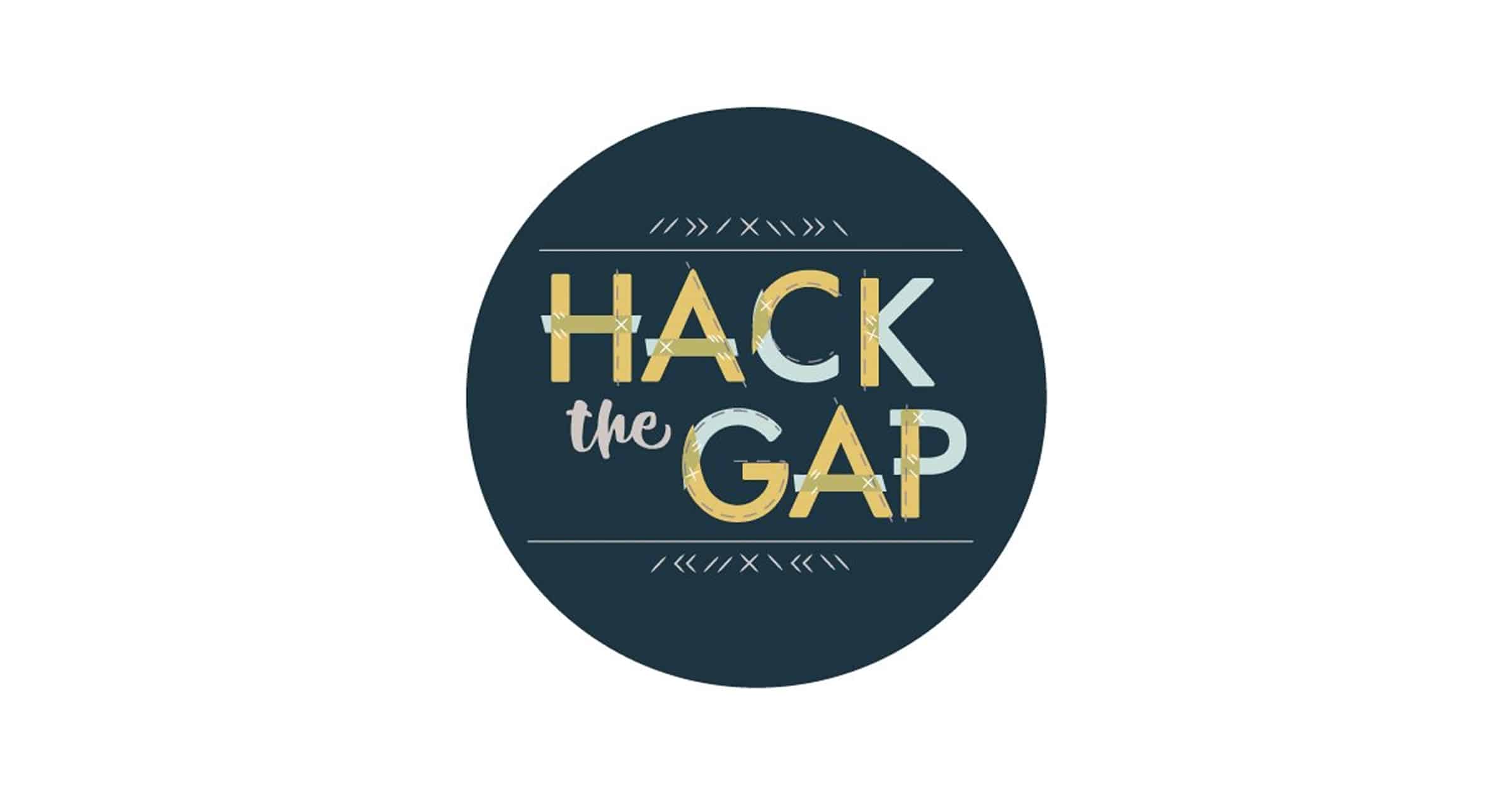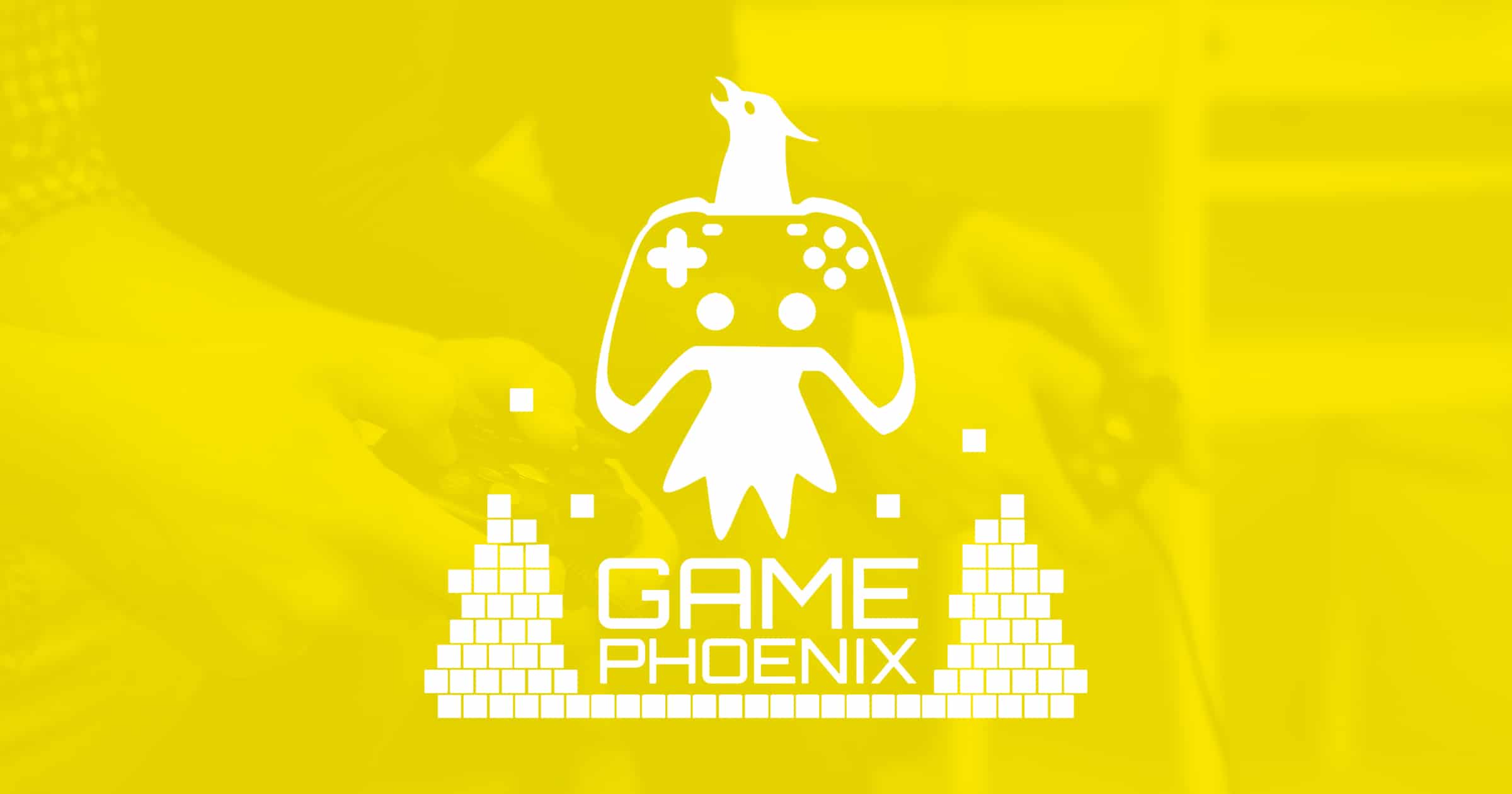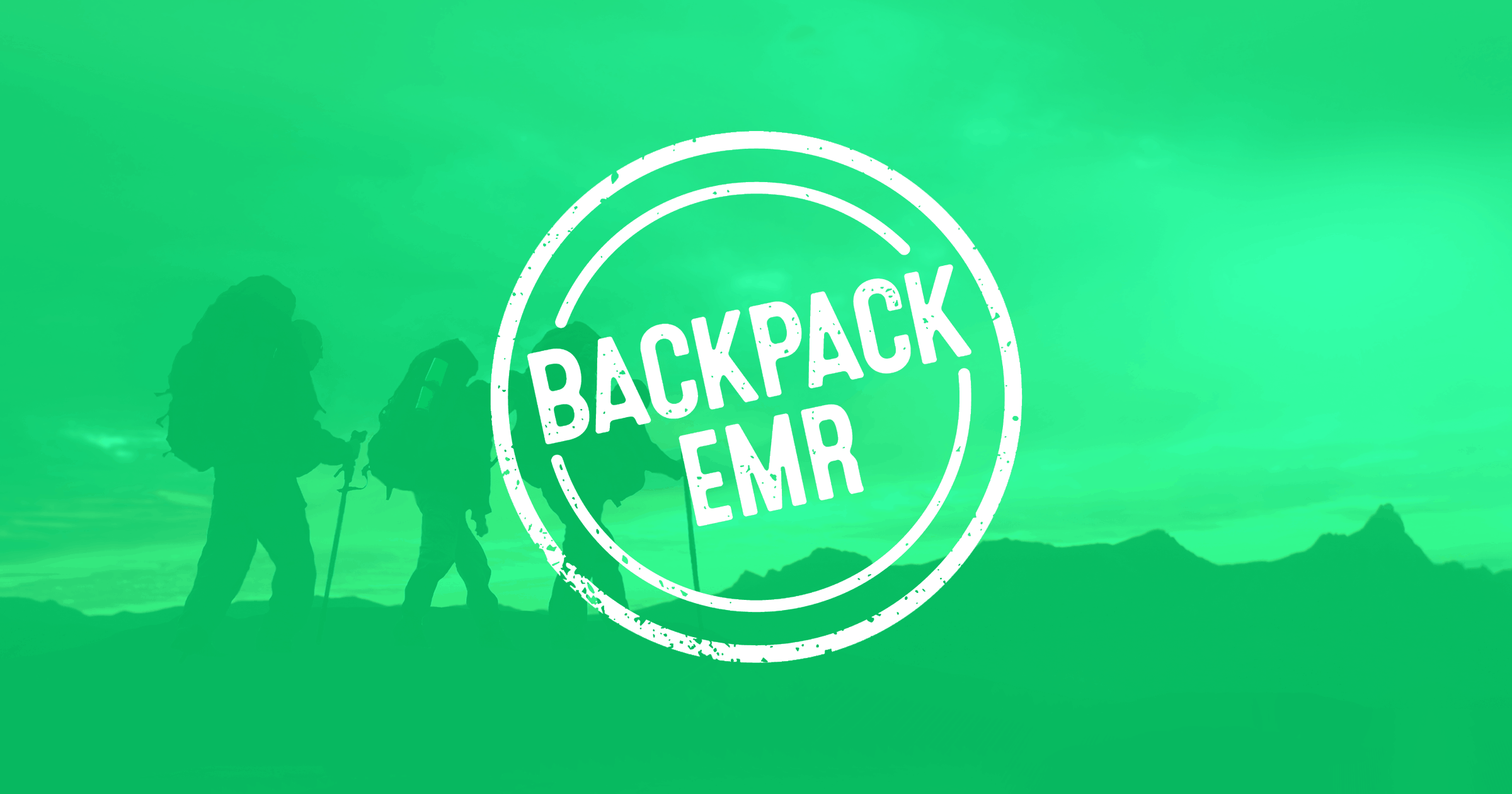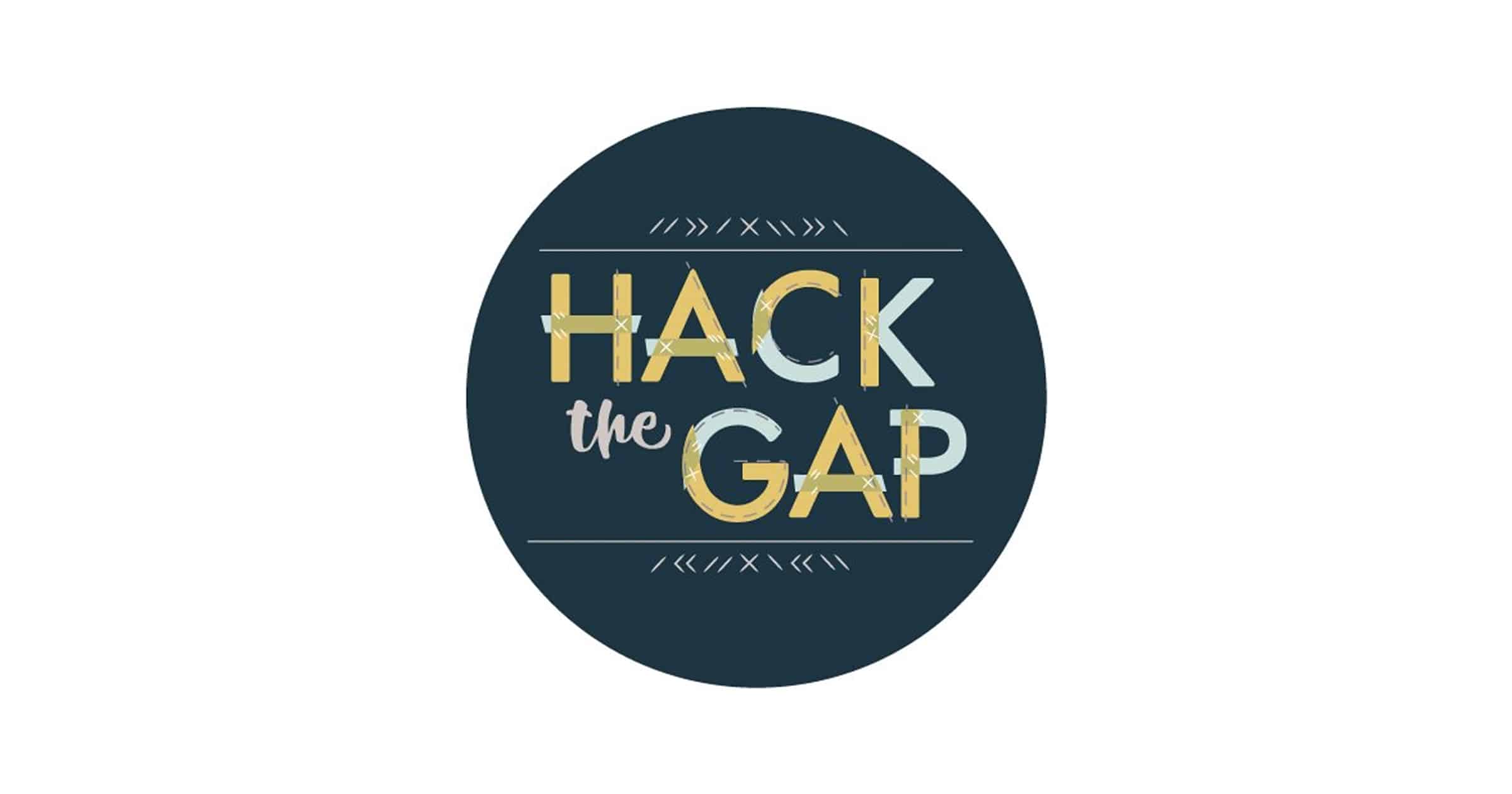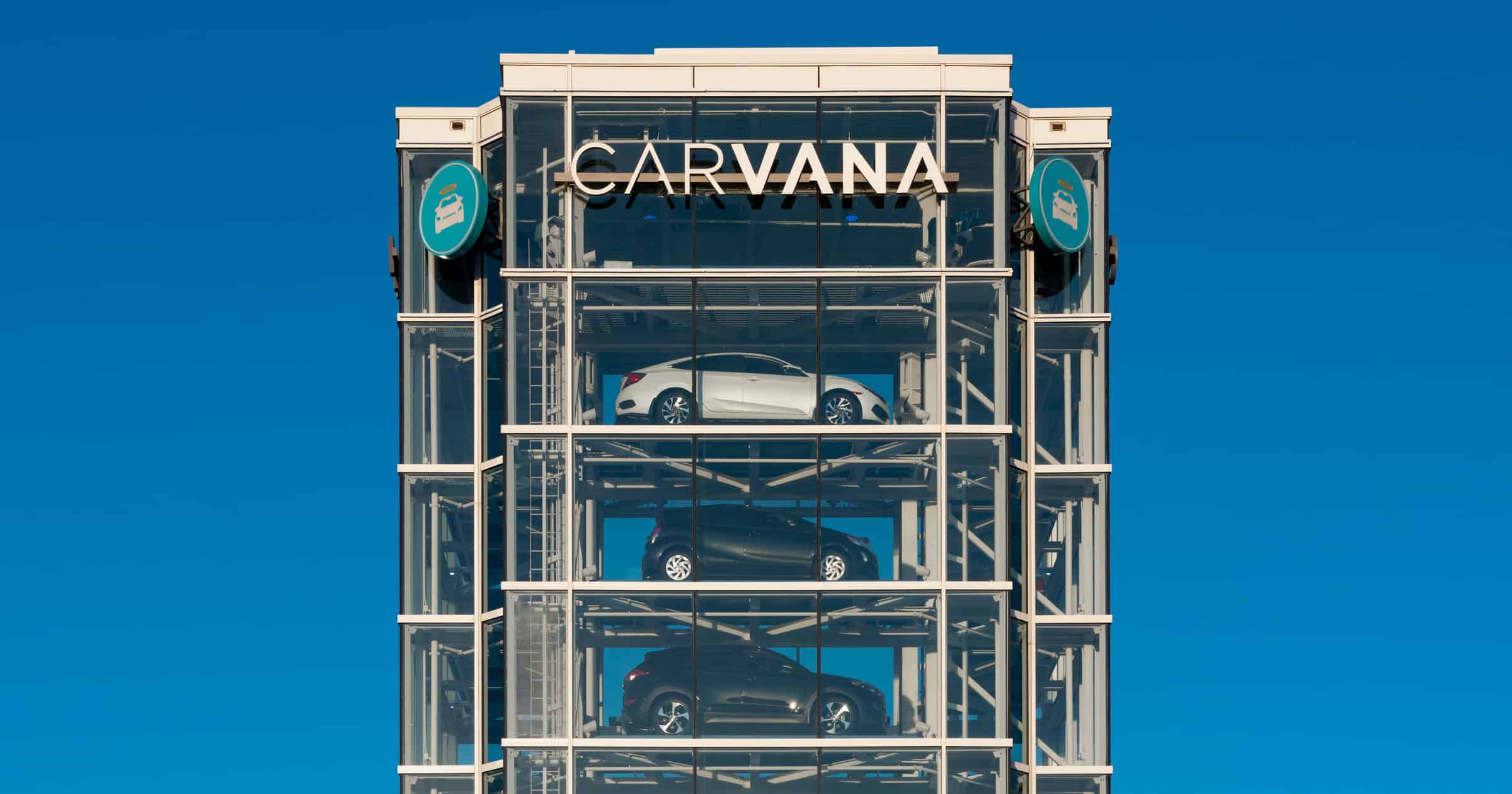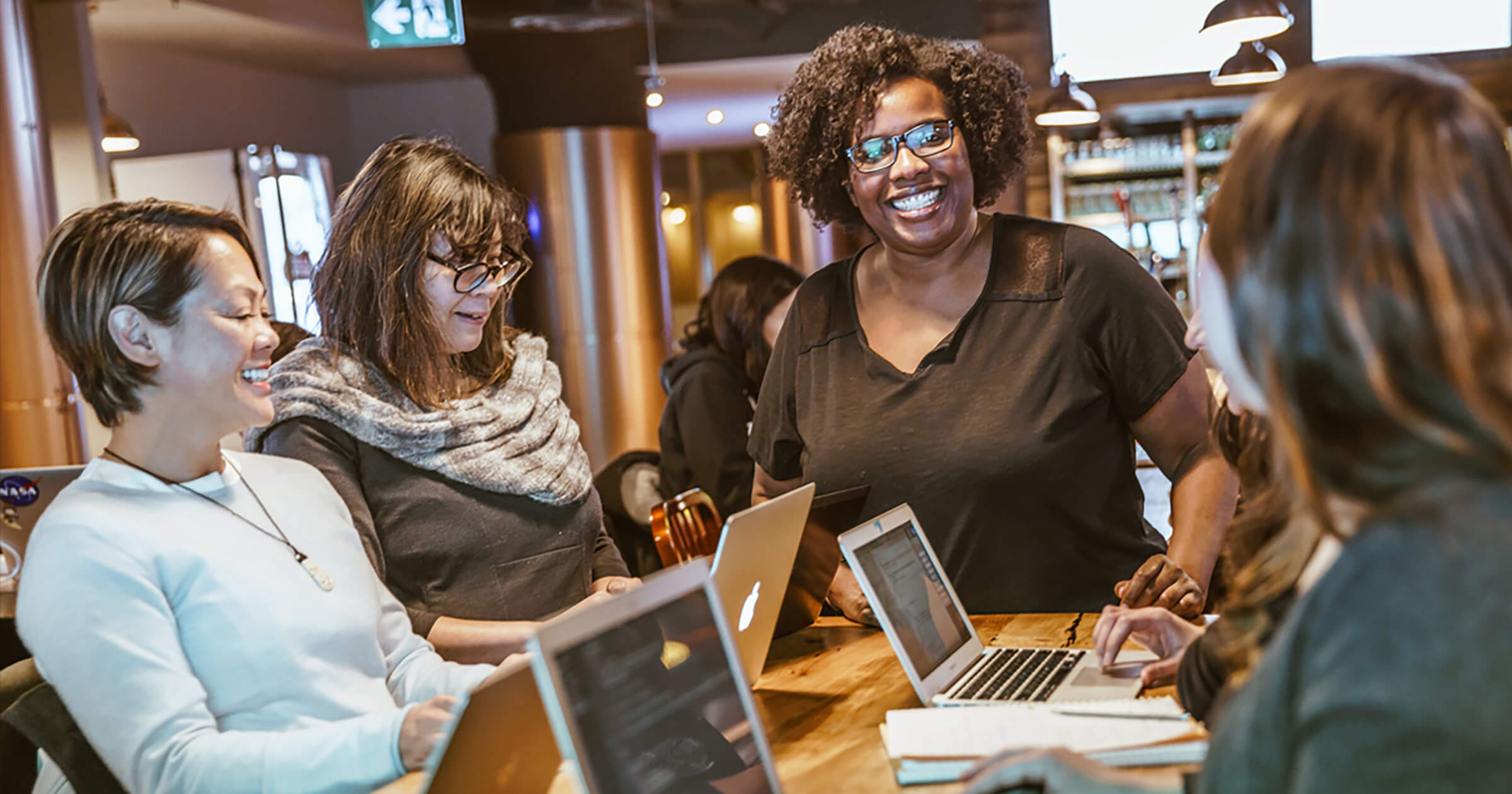Hack the Gap ended its week-long virtual event with a Demo Day on Saturday, April 18. The online gathering kicked off with a virtual brunch, courtesy of the team at Coconut Wisk. 82 people in the tech community joined the party to celebrate this year’s projects. Each of the hackathon’s six teams of five to eight women and/or non-binary individuals presented their work, gave a little insight as to the why and the how, and showed off the outcomes of all of their hard work. Because of this year’s virtual status, the teams included people from all over the world, and the reach of their solutions was global as well.
The teams worked remotely to solve some of the community’s largest problems surrounding COVID-19 such as being stuck at home without access to a gym, small business owners struggling to figure out how to continue to pay their employees and themselves, to people in all parts of the world struggling to take care of their mental health needs. Here are the apps the teams cooked up during the event.
Translate Direct
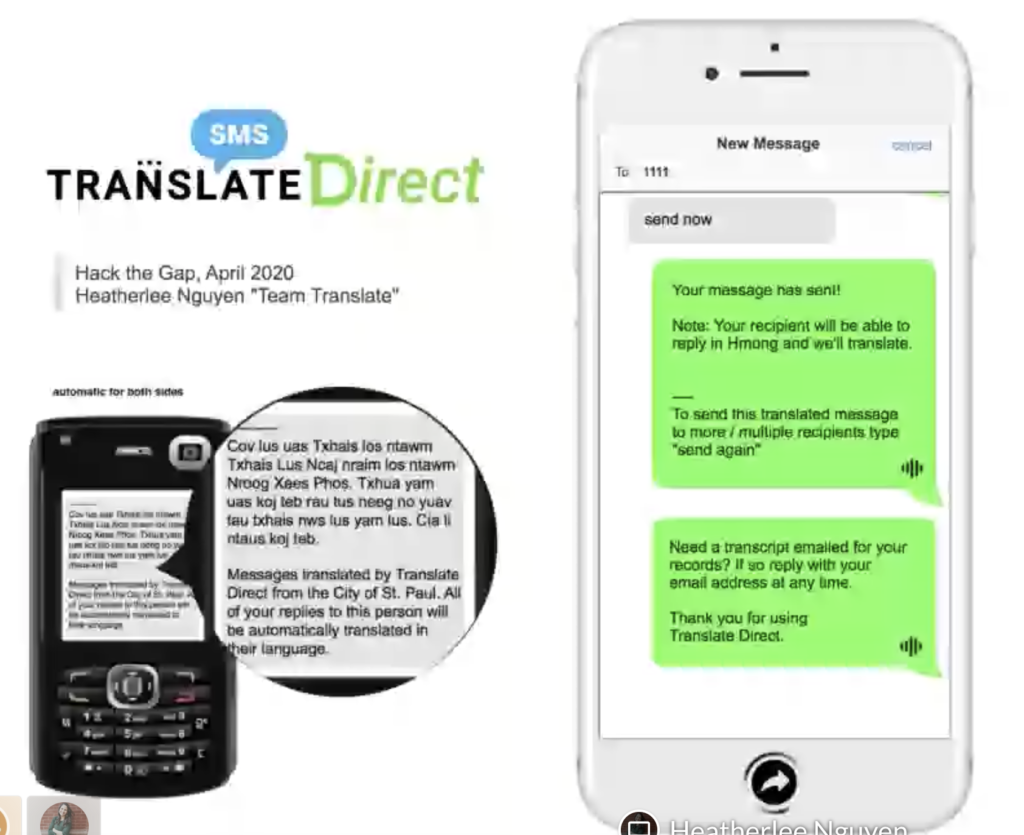
The app translates texts sent to it to any language. The message can then be sent to any number of people.
Homebody
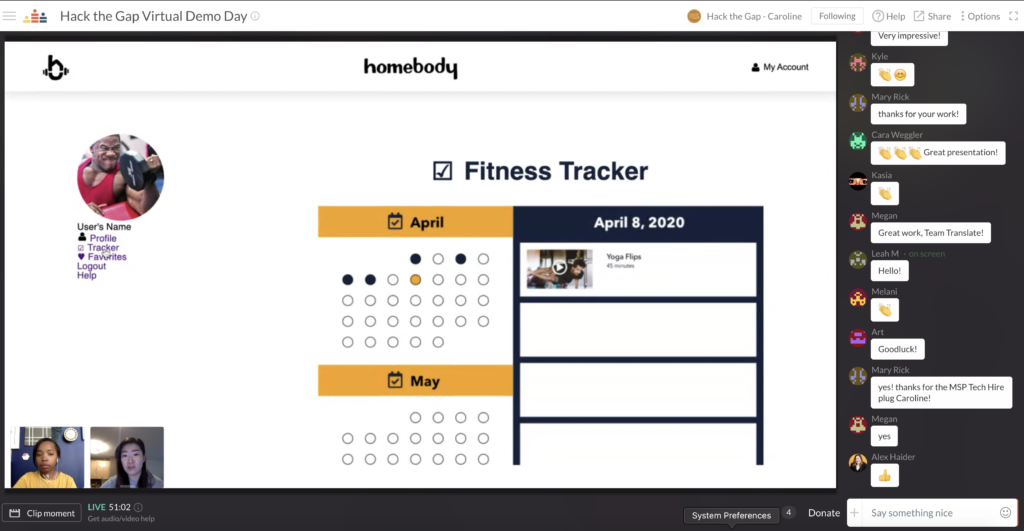
Allows users to search out a custom feed of workout videos and regimes based on their age, equipment, and interests.
TOLU (Take Out to Lift Up)
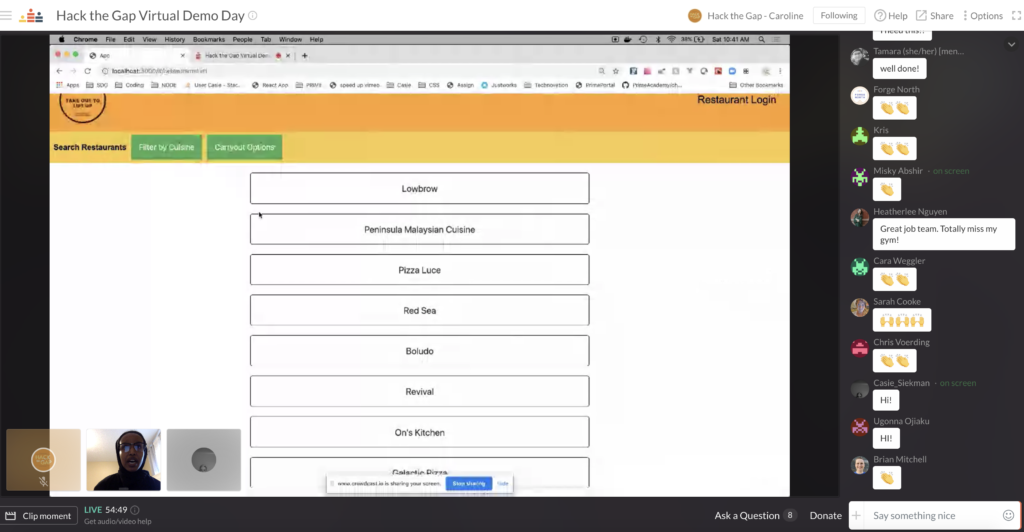
Gives restaurants without a web presence the ability to market their take out or delivery to the community to help keep their businesses open.
Hand in Hand
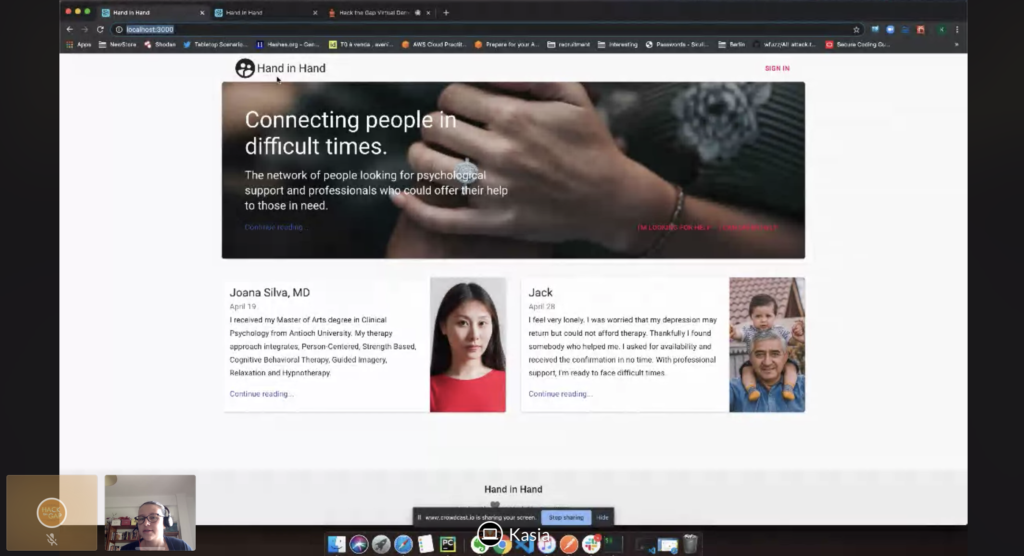
Allows people from around the world to connect to mental health professionals for telehealth meetings at no cost.
The Upchain
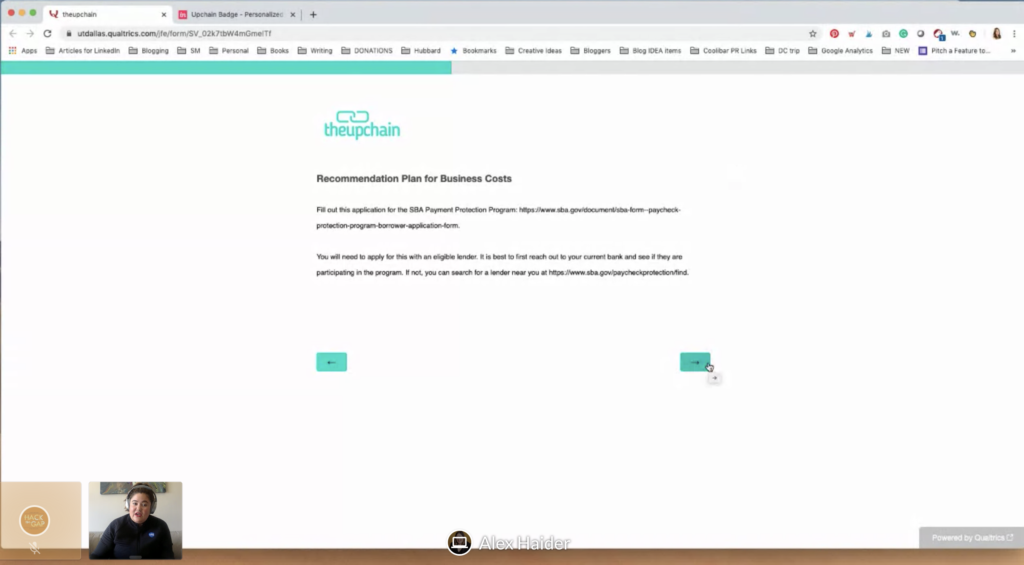
Helps small business owners navigate resources available including customized plans to keeping their businesses moving forward.
Ximity
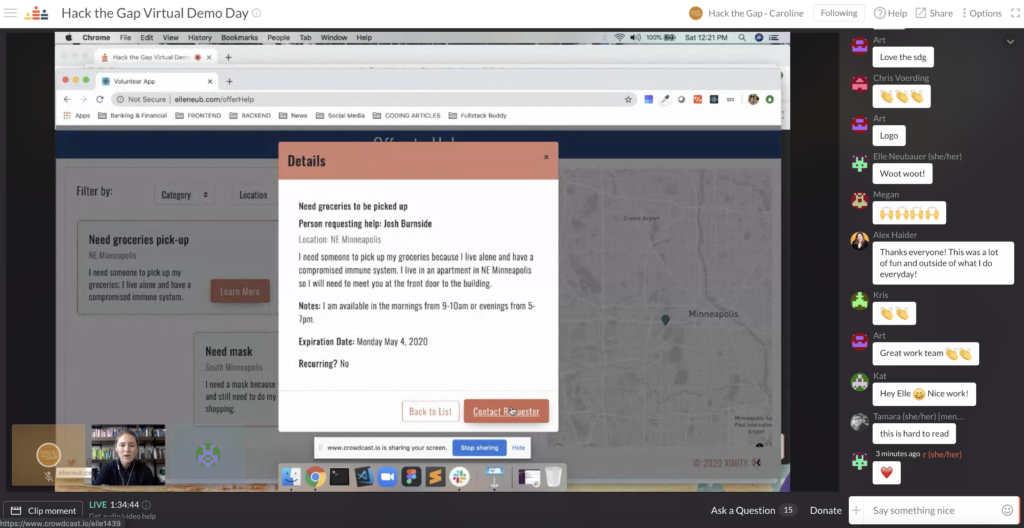
Connects vulnerable, at-risk people in the community to their neighbors for micro-volunteer services like grocery pick-up or mask delivery.
The judges listened along with the rest of the community, asking questions and giving feedback, and then the polls were opened for voting. After compiling the scores from the judges and factoring in the community vote, the winners were announced:
- First Place — TranslateDirect
- Second Place — Ximity
- Third Place — The Upchain
After the voting, teams reconnected in their Slack workspaces and congratulated each other, sharing contact information to be able to keep in touch moving forward. Some of the teams even committed to continuing to develop their projects to bring them to market.
Personal Reflection from Valerie Lockhart
I have spent many years running the MN Women in Tech and also designing websites, apps, and digital content, but being involved in the process of bringing a project to life virtually over the week was a beautiful thing. Working as a group remotely took a lot of communication and checking in on each other. People worked on their own, at their own times, and fully brought their different skills and experience levels to the project, and still it all flowed cohesively. Our team met regularly all week, tweaking things, updating code, and brainstorming together to make sure everyone had a chance to weigh in on decisions. It felt natural, and the more experienced devs on our team gave the rest of us excellent guidance and opportunities for learning. Having never participated in a hackathon before, I can only guess that this is a normal part of it all, but I feel like this was a great way to fight some of the imposter syndrome that women feel when they get involved in the tech sphere.
I interviewed a number of participants through the week, and it became clear that all of the teams had similar experiences to mine. Overwhelmingly, the feedback I got was that the biggest skill you can bring to a hackathon is a willingness to just jump in and try. No matter what experience or background you bring to the table, whether its development, UX, design, project management, or marketing, it’s all relevant to this process. Every voice is needed. I heard this over and over, from participants and mentors alike, and I think it’s really the point that needs to be driven home in our tech community. All voices are needed, and events like Hack the Gap are making strides to help people realize that they really do belong.
![]()
Kicking off April 11th, Hack the Gap’s virtual hackathon will work to address some of the social, economic, and health impacts of the current pandemic. The organization has partnered with a number of community members to brainstorm some initial ideas surrounding community needs, but participants are also invited to bring their own ideas, concerns, and/or opportunities they are seeing in their own communities so solutions can be built.
The inaugural virtual event will bring participants together online for a lively week of creative ideating, community connections, and cash prizes. Teams will consist of two to six women-identified and non-binary people which will be determined after a 60-90 minute brainstorming session with all participants on the 11th. Registration is still open.
Full Stack St. Paul, General Assembly, Twilio, MHTA, and Minnestar are all on board as event partners, and additional partners and sponsors are needed for the demo day to be held April 18. Caroline Karanja, CEO of Hack the Gap and founder of 26 Letters, and her team are hoping that there will be even more partnership opportunities coming through the rest of the year as new organizational initiatives will be released in the next couple of weeks.
Karanja said giving participants easy access to the event while ensuring security was a unique challenge. Other new aspects such as not having to secure a physical space or coordinating food and refreshments for the day of have scaled things down a bit for organizers.
“One of the biggest differences this year is the smaller scale of the event,” Karanja said. “We are all pretty spread out, so coordinating everyone online has had its challenges, but we did a couple of dry runs today, and it worked out really well.”
![]()
April 12 — Opening Day
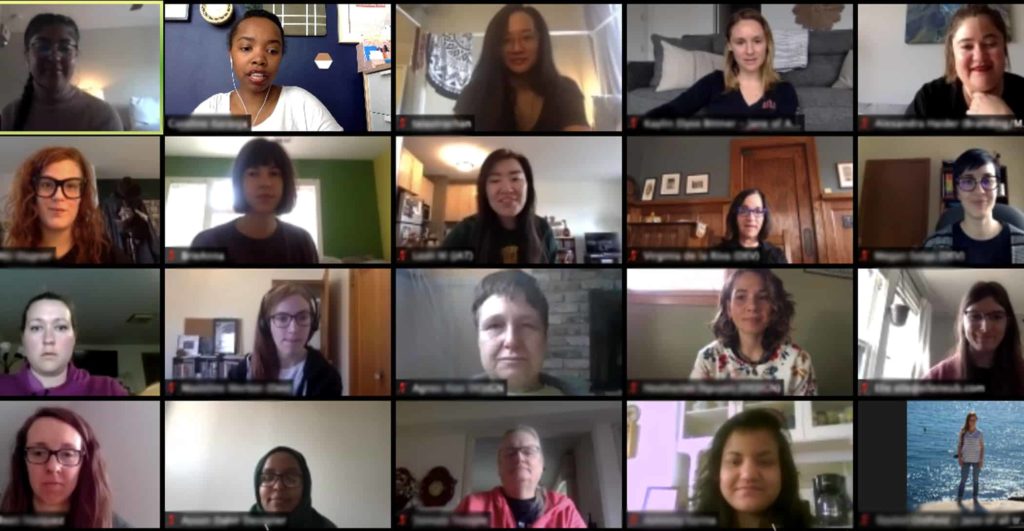
Yesterday morning, 40 individuals of all different backgrounds and levels of experience came together to brainstorm and discuss community needs during the COVID-19 pandemic.
Solutions were proposed, discussions were had on how those solutions could turn into cohesive projects, and then participants voted on the ideas that connected with the most people. Now, the teams have been formed and Slack channels have been created.
Next comes the work.
Participants will have all week to pull together a working prototype of their concepts and get ready to present to the larger community. We’ll follow along through this journey and document the experience right up to demo day on April 18. We can’t wait to see what the teams come up with. Stay tuned.
![]()
April 12 — Day Two
It’s day two of Hack the Gap, and all is going very well. Teams are working hard on apps that will solve issues related to COVID-19, and the mentors are answering questions and giving guidance to those who are newer to the quick-development scene. Teams have come up with some really good ideas such as ways for people to connect to fulfill needs, ways to support small businesses affected by the pandemic, and even tools to help people stay healthy and on track with their fitness while social distancing. It’s been really great to see people of all skill levels and experiences coming together, sharing tips, ideas, and learning from each other on a project focused exclusively on community.
What I’ve learned so far…
- If you’re conducting a virtual hackathon, collaborative tech like Slack, GitHub, and Google Drive is critical to the success of the project.
- I came into this thinking I knew quite a bit about development, and boy, I was wrong.
- Working as a team is tough… it depends heavily on clear communication and is still completely gratifying at the same time.
- I think the flexibility of a virtual hackathon is pretty awesome! It gives people the ability to work on things at times that are convenient for them, allowing for family time and regular breaks for mental health.
- There are some incredibly smart women in tech!
This week, I’ll be interviewing some of the participants and mentors in order to get a wider perspective on how Hack the Gap is changing the game for the collaborative hacking of community issues.
![]()
April 20
We’ve combined all of our mentor and participant Q&As into one post. Check it out!

